Related Research Articles
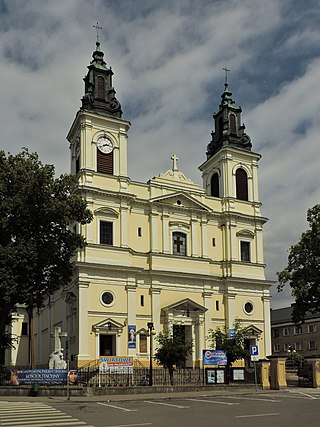
Garwolin is a town on the Wilga river in eastern Poland, capital of Garwolin County, situated in the southeast part of the Garwolin plateau in Masovian Voivodeship, 62 km southeast of Warsaw, 100 km northwest of Lublin. As of December 2021, the town has 17,566 inhabitants.

The Racławice Panorama is a monumental cycloramic painting depicting the Battle of Racławice, during the Kościuszko Uprising. It is located in Wrocław, Poland. The painting is one of only a few preserved relics of a genre of 19th-century mass culture, and the oldest in Poland. The panorama stands in a circular fashion and, with the viewer in the center, presents different scenes at various viewing angles. A special kind of perspective used in the painting and additional effects create a feeling of reality.
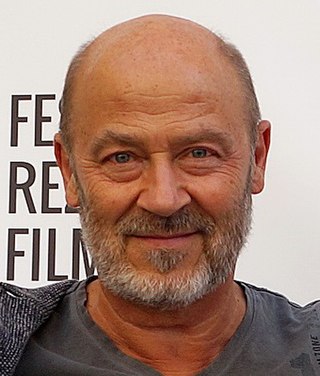
Jan Jakub Kolski is a Polish film director, cinematographer, and writer.

Silesian Museum in Katowice is a museum in the city of Katowice, Poland.

The "cursed soldiers" or "indomitable soldiers" were a heterogeneous array of anti-Soviet-imperialist and anti-communist Polish resistance movements formed in the later stages of World War II and in its aftermath by members of the Polish Underground State. The above terms, introduced in the early 1990s, reflect the stance of many of the diehard soldiers.

The Raczyński Library is a public library founded by Count Edward Raczyński in Poznań. The library's building was erected in 1822–1828 with the financial support of Edward Raczyński Foundation. The structure of a classical building features a colonnade reminiscent of the eastern façade of the Louvre. In front of the main building of the library stands the Hygieia's Fountain statue created by Albert Wolff in 1841.

The Vesper is a cocktail that was originally made of gin, vodka, and Kina Lillet. Since that form of Lillet is no longer produced, modern bartenders need to modify the recipe to mimic the original taste, with Lillet Blanc or Cocchi Americano as a typical substitute.
Krzysztof Ptak was a Polish cinematographer.

Franciszek Maksymilian Pieczka was a Polish actor. A graduate of the National Higher School of Theatre in Warsaw (1954), he first made his debut in the theatre in Jelenia Góra. He won the award for Best Actor at the Polish Film Festival in 1976 for The Scar.

Anna Borkowska was a Polish war refugee who settled in Iran. She was an actress and vocal teacher. As a child, after the Soviet invasion of Poland she was forced to leave home with some of her family members and transported to Siberia in the Soviet Union. She was one of the 120,000 Polish refugees who fled the Soviet Union with Anders' Army after the Axis invasion in 1941. She settled in Tehran.
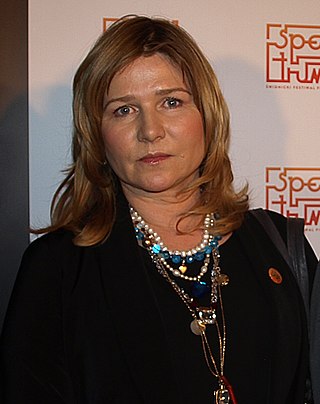
Grażyna Błęcka-Kolska is a Polish actress. She has appeared in 22 films and television shows since 1988. She starred in Johnnie Waterman, which was screened in the Un Certain Regard section at the 1994 Cannes Film Festival.

Magdalena Abakanowicz University of Fine Arts is a major fine-art academy located in the city of Poznań, in west-central Poland. It was founded in 1919 as the State School of Decorative Arts.
Złota Kaczka is a Polish award presented by the monthly Film since 1956.

Włodzimierz Korcz is a Polish composer, pianist, music producer and author of many popular songs. He graduated from the Academy of Music in Łódź and debuted in 1965. In 1968–1970 Korcz worked as music editor for Polskie Radio in Łódź. In 1974–1977 he was the music director at Teatr na Targówku in Warsaw.
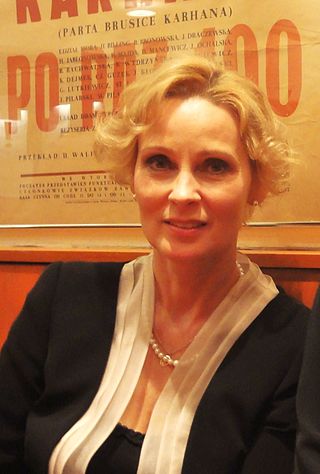
Maria Gładkowska is a Polish film, stage, and television actress. She gained critical acclaim in the 1980s that culminated in her Zbigniew Cybulski Award (1988). Gładkowska portrayed Daisy, Princess of Pless, her breakthrough performance in Magnat (1987), which was included in the list of 100 Best Polish Films of all time.

Tadeusz Lubelski is a Polish film historian, theorist and critic specializing in Polish and French cinema, translator, professor of the humanities, member of the European Film Academy.

Bartosz Opania is a Polish film, television and theatre actor.

Makabi Warszawa, in English Makabi Warsaw, founded in 1915 in Warsaw, Poland was a Polish sports club founded by the Jewish Gymnastic and Sports Association "Maccabi" in Warsaw. It was the largest multi-section Jewish sports club in the Second Polish Republic.
The cinema of moral anxiety, Polish: Kino moralnego niepokoju, was a short-lived (1976–1981) but influential movement in the history of the cinema of Poland. The term was also translated as "cinema of moral unrest", "cinema of moral concern", "cinema of moral dissent". Films of this movement portrayed the crisis of the regime in Communist Poland, usually in the setting of a provincial town. The development of the movement was abruptly stopped by the introduction of the martial law in Poland in 1981, and when it was lifted, the country was overwhelmed with powerful political and social processes which had eventually led to the fall of Communism in the country and disappearance of the addressed social issues.
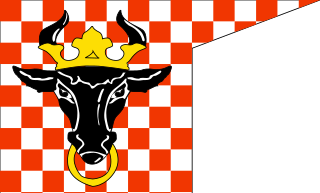
The Duchy of Kalisz was a feudal district duchy in the Greater Poland, centered on the Kalisz Region. Its capital was Kalisz. The state was established in 1177, in the partition of the Duchy of Greater Poland, after the rebellion against Mieszko III. Duke Casimir II the Just of the Piast dynasty become its first ruler. It existed until 1279, when, it got united with duchies of Gniezno and Poznań, under the rule of Przemysł II, forming the Duchy of Greater Poland. It remained a fiefdom within the Duchy of Poland, until 1227, and after that, it become an independent state.